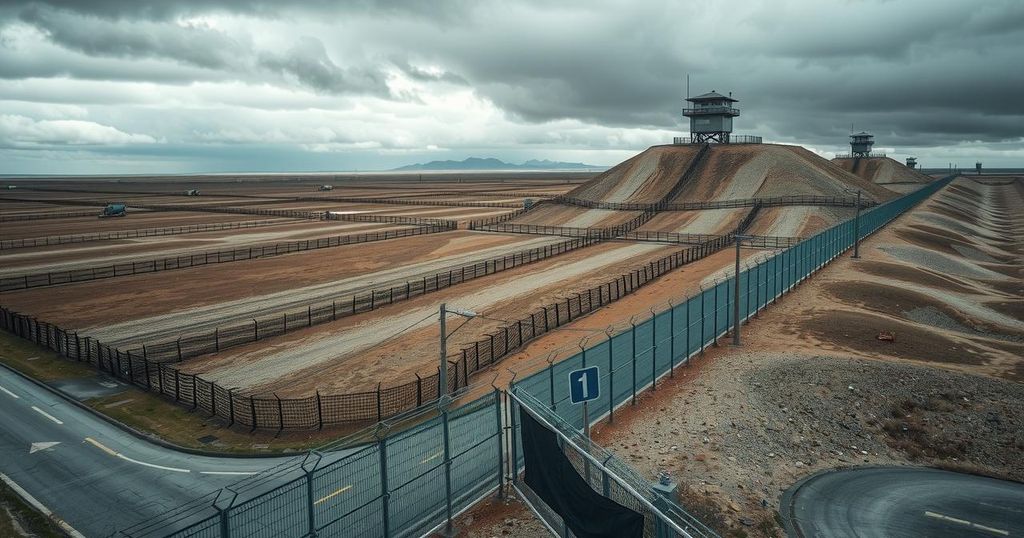Germany Extends Border Controls Ahead of Upcoming Federal Elections

German Chancellor Olaf Scholz announced a six-month extension of border controls in Germany, aimed at managing migration before the upcoming federal elections on February 23. The SPD is facing criticism and low poll numbers, while the conservative CDU/CSU bloc leads the polls. Meanwhile, Alice Weidel of the far-right AfD is meeting with Hungary’s PM to discuss immigration issues, highlighting the rising influence of right-wing parties in Europe.
German Chancellor Olaf Scholz has declared a six-month extension of border controls across all German borders. This decision, announced just over a week before the crucial federal election set for February 23, emphasizes the significant role of migration in the current political landscape. Scholz confirmed that Germany has notified the European Commission regarding this extension, which will keep the border measures in place until mid-September.
The temporary border controls were originally instated in September last year to manage irregular migration more effectively. Since their implementation, roughly 47,000 individuals have been turned back at the borders, and authorities have arrested approximately 1,900 human traffickers. Notably, asylum applications in Germany decreased by one-third in 2024 compared to the previous year.
The center-left Social Democrats (SPD), led by Scholz, face criticism over their migration policies, particularly following a series of violent incidents attributed to migrants and asylum seekers. With the party currently polling third at about 16%, they are on track for what could be their lowest electoral results to date. In contrast, the conservative CDU/CSU bloc is leading in the polls, making a crackdown on irregular migration a central campaign promise.
In a separate development, Alice Weidel, co-leader of the Alternative for Germany (AfD) party, has traveled to Budapest to meet with Hungarian Prime Minister Viktor Orban. This meeting marks a significant moment, as it is the first time Orban has welcomed a representative of the AfD. Discussions are expected to focus on the ongoing European migration crisis, with both leaders advocating for hardline immigration policies and seeking to strengthen ties with Russia.
With the February 23 elections looming, there is a rising concern that pro-Russian and anti-American factions may secure around 25% of the vote. Such parties oppose current sanctions against Russia and advocate for the resumption of Russian gas imports. The political climate is intensifying as the candidates ramp up their campaign efforts, leading to increased scrutiny of their foreign policy positions, particularly concerning relations with Russia and the United States.
In summary, the extension of border controls reflects the ongoing challenges Germany faces regarding migration. As the federal election approaches, both major parties are working to address public concerns about security and immigration. The growing influence of the AfD, coupled with discussions among far-right leaders, signifies a potential shift in the political landscape post-election.
Original Source: www.dw.com








